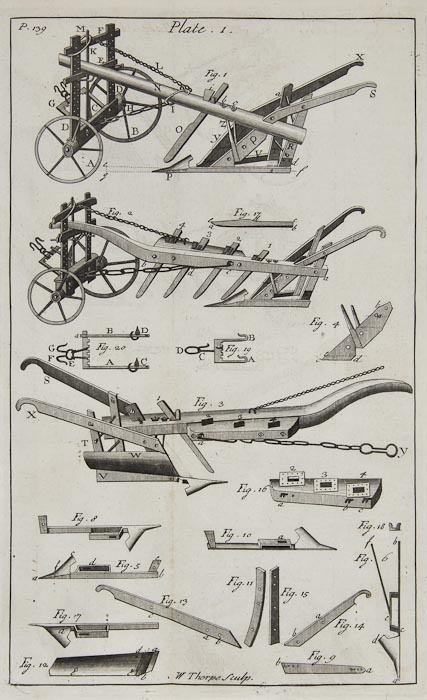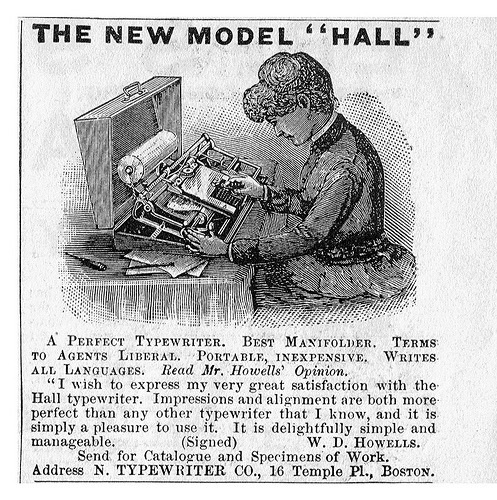English Corner
A discussion on whether scholars should take the time to write a blog about their work.
http://www.universityaffairs.ca/should-you-enter-the-academic-blogosphere.aspx
(Thanks to Mareike König.)
http://www.universityaffairs.ca/should-you-enter-the-academic-blogosphere.aspx
(Thanks to Mareike König.)
KlausGraf - am Samstag, 22. Oktober 2011, 16:19 - Rubrik: English Corner
noch kein Kommentar - Kommentar verfassen
Tamiment Library at NYU is currently collaborating with some GSLIS folks from Queens College to collect materials for an archival collection documenting the Occupy Wall Street movement, including an oral history component.
http://arrrchivist.tumblr.com/post/11692439231/occupy-wall-street-archival-project
 Photo: David Shankbone http://creativecommons.org/licenses/by/3.0/deed.de
Photo: David Shankbone http://creativecommons.org/licenses/by/3.0/deed.de
http://arrrchivist.tumblr.com/post/11692439231/occupy-wall-street-archival-project
 Photo: David Shankbone http://creativecommons.org/licenses/by/3.0/deed.de
Photo: David Shankbone http://creativecommons.org/licenses/by/3.0/deed.deKlausGraf - am Donnerstag, 20. Oktober 2011, 15:57 - Rubrik: English Corner
noch kein Kommentar - Kommentar verfassen
Für die Archive nicht nur als Anwender ein Problem...:
http://www.enterpriseefficiency.com/author.asp?section_id=1077&doc_id=233421
http://www.enterpriseefficiency.com/author.asp?section_id=1077&doc_id=233421
Archivar123 - am Mittwoch, 19. Oktober 2011, 18:59 - Rubrik: English Corner
noch kein Kommentar - Kommentar verfassen
http://www.michaelgeist.ca/content/view/6069/125/
"The Supreme Court of Canada today issued its much anticipated ruling in Crookes v. Newton, a case that focused on the issue of liability for linking to allegedly defamatory content. The court provided a huge win for the Internet as it clearly understood the significance of linking to freedom of expression and the way the Internet functions by ruling that there is no liability for a mere hyperlink. The key quote from the majority, written by Justice Abella:
I would conclude that a hyperlink, by itself, should never be seen as “publication” of the content to which it refers.
This is an enormous win for the Internet since it rightly recognizes that links are just digital references that should not be viewed as republication of the underlying content. "
"The Supreme Court of Canada today issued its much anticipated ruling in Crookes v. Newton, a case that focused on the issue of liability for linking to allegedly defamatory content. The court provided a huge win for the Internet as it clearly understood the significance of linking to freedom of expression and the way the Internet functions by ruling that there is no liability for a mere hyperlink. The key quote from the majority, written by Justice Abella:
I would conclude that a hyperlink, by itself, should never be seen as “publication” of the content to which it refers.
This is an enormous win for the Internet since it rightly recognizes that links are just digital references that should not be viewed as republication of the underlying content. "
KlausGraf - am Mittwoch, 19. Oktober 2011, 17:48 - Rubrik: English Corner
noch kein Kommentar - Kommentar verfassen

Pink, red and yellow flower printed cocktail dress, from Sketch Book of 1960 & 1961, London College of Fashion Victor Stiebel Archive.
"The Visual Arts Data Service (VADS) is pleased to announce the launch of the Victor Stiebel Archive from the London College of Fashion, which has now been fully digitised and made available online.
Victor Stiebel (1907-1976) was a British fashion designer and his clients included members of the aristocracy and the royal family, including Princess Margaret, and he also had an international reputation and dressed stars such as Katherine Hepburn and Vivien Leigh.
The Archive at London College of Fashion includes three sketchbooks from his couture house in the early 1960s. The sketch books show models wearing his designs, ranging from stylish cocktail dresses to smart suits and blouses, and the books would serve as an overview of a collection and and be shown to clients to encourage them to place orders. The three sketch books cover Stiebel’s final years before ill health forced him to retire in 1963.
South African born Stiebel originally moved to England to study architecture in Cambridge where he designed the décor and costumes for the Footlights Review. He went on to train with the court dressmaker Reville & Rossiter and in the early 1930s opened his own business in Mayfair in London. After a period in the army during the Second World War and then working for Jacqmar as Director of Couture, he opened his own business again in Cavendish Square.
These new images add to the vast collection of material that has already been opened up online from the unique and extensive archives of the London College of Fashion. This includes images of sewing patterns; shoes from the Cordwainers College; promotional photographs of wool fashions from the Woolmark Company; promotional photographs of cosmetics from Gala and other cosmetics companies; as well as photographs which chronicle the history of the College from its origins as two early needle trade schools up until the 1970’s. In total this includes almost 8000 images which have been made available online for free use in non-commercial learning, teaching, and research.
To view the London College of Fashion Victor Stiebel Archive, see:
http://www.vads.ac.uk/collections/LCFVS
To view all the VADS collections, see:
http://www.vads.ac.uk/collections"
VADS Blog, 10.10.11
Wolf Thomas - am Dienstag, 18. Oktober 2011, 21:03 - Rubrik: English Corner
noch kein Kommentar - Kommentar verfassen

Baryshnikov warming up in Russia.
"Like most New Yorkers, Mikhail Baryshnikov had a bit of a storage problem. But unlike most New Yorkers, he had options that didn’t include orange storage lockers.
So when the dancer and his wife were getting ready to move, Baryshnikov donated 35 boxes filled with videos, photos, letters and documents -- his archive -- to the New York Public Library.
While most artists donate or sell their archives near the end of their careers, the 63-year-old is still working as a dancer, actor and founder of the Baryshnikov Arts Center in Manhattan. But space issues brought this collection to the library a little earlier than usual.
"People have so much more stuff than they used to," said Jan Schmidt, the curator of the Jerome Robbins Dance Division for the New York Public Library. "Fifty years ago if someone had a couple of films, that was a lot. Today people have hundreds, if not thousands of videos of their work."
Baryshnikov’s archives include nearly 700 videos, in which he can be seen practicing as a young boy, doing exercises at the Vaganova School in the 1960s, and after defecting from the Soviet Union in 1974, working with great choreographers like George Balanchine, Jerome Robbins and Martha Graham.
"I was just stunned to see so many incredible things," Schmidt said of the videos. "There's a lovely piece where Baryshnikov is doing a piece for Martha Graham and then he just comes and kneels in front of her and it's just really moving."
Schmidt says that despite his reputation as a great dancer, Baryshnikov still displayed a commitment to achieving the choreographer’s vision.
“He really has a genuine interest in what the choreographer wants him to do and you can really see the choreographer and him working off each other to really create something that comes from within,” Schmidt said.
Cataloguing, preserving and digitizing all this information is a complex and lengthy process that Schmidt estimates will take at least three years. At that point, it should be searchable by dancer, choreographer, year or performance.
“I’m looking forward to the point where they’ll be completely processed and available to the public because this will be an amazing record of his artistry,” Schmidt said."
WNYC, 7.10.11
Wolf Thomas - am Dienstag, 18. Oktober 2011, 20:46 - Rubrik: English Corner
noch kein Kommentar - Kommentar verfassen
http://www.copyfraud.com/
Copyfraud and Other Abuses of Intellectual Property Law is a path-breaking book that will change the way we think about making—and using—music, movies, art, fiction and every other kind of creative work in the twenty-first century.
Jason Mazzone argues that intellectual property law in the United States is on the verge of breakdown and needs to be reformed—but not for the reasons given by most critics. Most Americans are familiar with the problems of illicit downloading and stolen software. This is only part of the story. An equally great problem is overreaching by publishers, producers, artists and others who claim stronger rights than the law actually gives them.
From phony copyright notices attached to the U.S. Constitution, to lawsuits attacking people who poke fun at Barbie, to costly fights over digital sampling in hip-hop, overreaching claims of intellectual property rights are everywhere. Overreaching interferes with legitimate uses and reproduction of a wide variety of works, imposes enormous social and economic costs, and stifles creative endeavors, in areas ranging from documentary filmmaking to university education to fan fiction.
Jason Mazzone, a renowned legal scholar and intellectual property expert, makes a series of timely proposals by which governments, organizations and ordinary people can stand up to creators and content providers who try to grab more than the law gives them. Erudite, surprising and compulsively readable, Copyfraud and Other Abuses of Intellectual Property Law is a breakthrough title that will change forever how we look at creativity, law and commerce.

Copyfraud and Other Abuses of Intellectual Property Law is a path-breaking book that will change the way we think about making—and using—music, movies, art, fiction and every other kind of creative work in the twenty-first century.
Jason Mazzone argues that intellectual property law in the United States is on the verge of breakdown and needs to be reformed—but not for the reasons given by most critics. Most Americans are familiar with the problems of illicit downloading and stolen software. This is only part of the story. An equally great problem is overreaching by publishers, producers, artists and others who claim stronger rights than the law actually gives them.
From phony copyright notices attached to the U.S. Constitution, to lawsuits attacking people who poke fun at Barbie, to costly fights over digital sampling in hip-hop, overreaching claims of intellectual property rights are everywhere. Overreaching interferes with legitimate uses and reproduction of a wide variety of works, imposes enormous social and economic costs, and stifles creative endeavors, in areas ranging from documentary filmmaking to university education to fan fiction.
Jason Mazzone, a renowned legal scholar and intellectual property expert, makes a series of timely proposals by which governments, organizations and ordinary people can stand up to creators and content providers who try to grab more than the law gives them. Erudite, surprising and compulsively readable, Copyfraud and Other Abuses of Intellectual Property Law is a breakthrough title that will change forever how we look at creativity, law and commerce.

KlausGraf - am Samstag, 15. Oktober 2011, 19:26 - Rubrik: English Corner
noch kein Kommentar - Kommentar verfassen
KlausGraf - am Mittwoch, 12. Oktober 2011, 20:40 - Rubrik: English Corner
noch kein Kommentar - Kommentar verfassen
Citizen's Archive School Campaign from Maaz Maudood on Vimeo.
Animation done for the Citizen's archive of PakistanWolf Thomas - am Sonntag, 9. Oktober 2011, 19:27 - Rubrik: English Corner
noch kein Kommentar - Kommentar verfassen
KlausGraf - am Donnerstag, 6. Oktober 2011, 22:53 - Rubrik: English Corner
noch kein Kommentar - Kommentar verfassen

